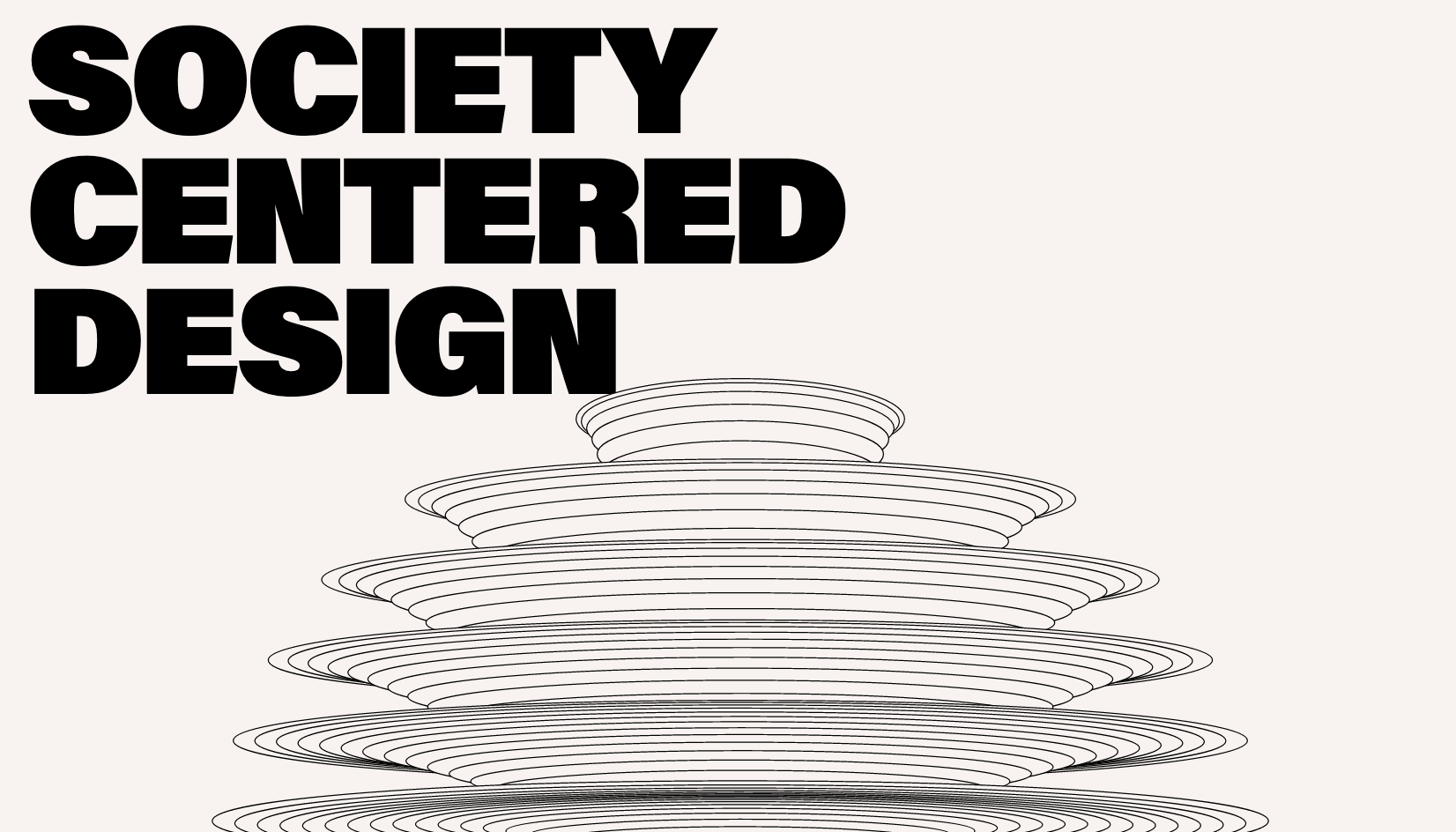Society Centred Design

If you work in the design space, or with designers, then you'll likely have heard of human-centred design. It's a concept which states that well-designed products and services are those where the designer considers how people will use the product/service, and validates those assumptions in real-world tests. It's an extremely popular approach, as it asks people to consider perspectives other than their own when creating things.
However, this relentless focus on an individual's needs and wants can obscure the bigger picture of what wider society needs and wants. So technology studio IF has published a manifesto for Society Centred Design.

They write:
20th century approaches like design thinking, human-centered design, and jobs to be done too often look at people solely as individuals. Or, worse yet, only as consumers. They don’t consider people in relation to their communities or to wider society. And society itself is ignored by design.
We want to move beyond human-centered design to society-centered design. We must design for the collective. We must design for society.
They've published ten principles by which you can pursue society-centred design instead.
- Put Care First
- Earn Trust
- Empower Collective Agency
- Reimagine Public Value
- Design For People's Rights
- Ensure Fair and Just Oversight
- Redistribute the Power of Technology
- Create Compassion at Scale
- Design for Regenerative Action
- Confront Uncertainty
You can see the full details of each of the principles on the manifesto website, as well as signing up to promise to apply the principles to your work.
I've signed up, because I wholeheartedly agree that focusing design on individuals can have wider negative consequences for society. Being more intentional about considering the bigger picture in the design process will help us strengthen our social contract with both other humans and the wider world.

